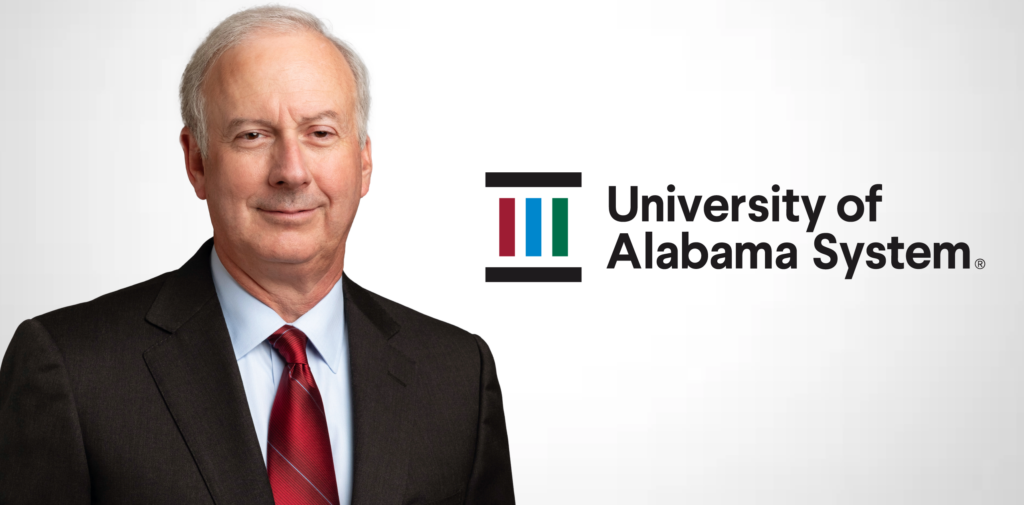The University of Alabama at Birmingham will join an international effort coordinated by Scripps Research to test drugs for COVID-19.
The work centers around ReFRAME, a vast collection of drugs developed for other diseases that are already known to be safe for humans. Researchers at Calibr, the drug development division of Scripps Research, are teaming up with scientists from the United States, Europe and Asia to screen this vast collection for individual drugs or combinations that may be effective in treating people exposed to COVID-19.
Rich Whitley, M.D., distinguished professor of pediatrics, will lead the UAB effort.
“We will screen the Scripps Calibr repurposed library of compounds to determine if any licensed drugs have activity against Sars-Cov-2, the virus that causes COVID-19,” Whitley said. “If there are any that are active, we will plug them into my National Institutes of Health U19 grant and, specifically, the coronavirus project.”
In 2019, Whitley’s Antiviral Drug Discovery and Development Center at UAB was awarded a five-year, $37.5 million grant from the National Institute of Allergy and Infectious Diseases Centers of Excellence for Translational Research to study and develop treatments for high-priority infections. These include the coronaviruses that caused SARS and MERS, with the addition now of the novel coronavirus that causes COVID-19. The antiviral drug center is also seeking treatments for influenza viruses; flaviviruses like dengue, West Nile virus and Zika; and alphaviruses, such as Venezuelan equine encephalitis virus and chikungunya. Remdesivir, an investigational drug developed by Whitley for MERS and now produced by Gilead Sciences, is currently being tested in hospitals for treating COVID-19 patients.
In Birmingham, the screening of the ReFRAME compounds will be done at Southern Research’s state-of-the-art High-Throughput Screening Center, which has advanced robotic equipment and a well-trained staff with the capacity to run a wide variety of assay types.
Southern Research is a nonprofit scientific research organization, and its board is chaired by UAB President Ray Watts, M.D.
Compounds that show activity in the Southern Research screening would then be further tested by Whitley’s collaborators on the NIH U19 grant. Mark Denison, M.D., professor of pediatrics at Vanderbilt University Medical Center, would study a compound’s medicinal chemistry and mechanism of action. Ralph Baric, Ph.D., professor of microbiology and immunology at the University of North Carolina-Chapel Hill, would study preclinical cellular and animal models.
“COVID-19 is an unprecedented public health crisis that will only be brought fully under control by effective medical therapies,” said Peter Schultz, Ph.D., president and CEO of Scripps Research, La Jolla, California. “Repurposing drugs that have already been approved for use in humans, or compounds for which we have ample safety data, offers the most rapid path to finding an antiviral drug or drug combination that is effective against COVID-19.”
Shortly after the initial COVID-19 outbreak began in China, Calibr began sharing the ReFRAME library and conducting joint experiments with other research teams at Scripps Research and collaborating institutions worldwide. Support comes from the Bill & Melinda Gates Foundation.
“In the case of COVID-19,” said Arnab Chatterjee, vice president of Medicinal Chemistry at Calibr, “we could leverage this important resource, along with Calibr’s expertise in drug development and discovery, to collaborate with some of the world’s leading virology labs and quickly identify potential medicines.”
Schultz says that, while the results of the collaborations are still preliminary and need to be confirmed, they have already identified a number of compounds that show varying degrees of activity against the virus. The researchers hope to soon begin testing the drugs in cellular and animal models, including testing combinations of drugs that work by two different mechanisms for enhanced effectiveness.
At UAB, Whitley holds the Loeb Eminent Scholar Chair in Pediatrics.
(Courtesy of UAB)













